Search
Remove Ads
Advertisement
Summary 
Loading AI-generated summary based on World History Encyclopedia articles ...
Search Results
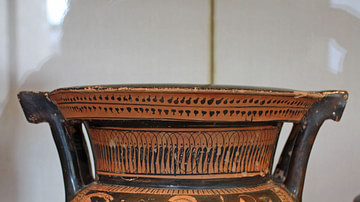
Article
Greek vases: names, shapes and functions
The system of names used today for Greek vases has quite rightly been described by one leading scholar as 'chaotic'. Many of the names were first applied in the eighteenth and nineteenth centuries by scholars who tried to fit the names of...
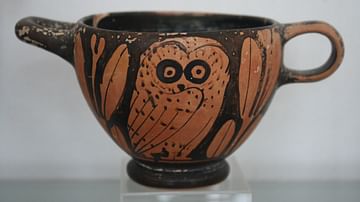
Article
Making and decorating Athenian black- and red-figure vases
The first stage in making a pot is to dig the clay out of the ground. Pieces of grit or plant matter must be removed before the clay can be used. This was done in ancient times, as it is today, by mixing the clay with water and letting the...
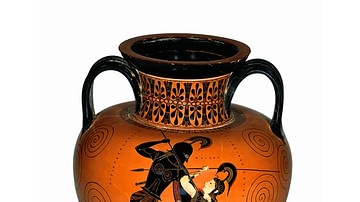
Article
Firing Athenian black and red figure vases
A distinctive red and black colour scheme characterises most of the painted pottery of sixth- and fifth-century Athens. The colours result from the skilful exploitation of the high iron content of Athenian clay by an ingenious process of...

Definition
Gospel of John
In the canon of the New Testament, the fourth gospel of John is uniquely different from the other three, known as the Synoptics ("seen together"). Mark, Matthew, and Luke have parallel ministries and methods of relating the story of Jesus...

Definition
John the Baptist
John the Baptist (d. c. 30 CE) was a 1st-century CE itinerant preacher in Judea. We do not know his full name, but he is recognized by his activity. 'Baptizer' (Greek: baptizo) was translated directly into English and meant 'to immerse' or...

Interview
Interview: The First Black Archaeologist: A Life of John Wesley Gilbert by John Lee
John Lee joins World History Encyclopedia to tell us all about his new book, The First Black Archaeologist: A Life of John Wesley Gilbert. Kelly (WHE): Thank you so much for joining me! Let us start by talking about what the book is about...

Definition
Lamia
Lamia is a female or a hermaphroditic demon found in Greek mythology who devoured children and seduced men. She appears in literature as early as the 6th century BCE and is said to be fearsome to look upon with an ugly face, the upper body...
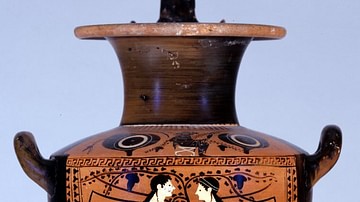
Definition
Ancient Greek Pottery
Greek pottery has four main types: Geometric, Corinthian, Athenian Black-figure, and Athenian red-figure pottery. Pottery vessels were made for everyday use such as the two-handled amphora for storage, the single-stem kylix cup for drinking...

Image
Vases & Rainbow Mosaic, Carthage
Vases linked by rainbows with various animals and flowers in between on a fllor mosaic. Below the upper row of vases is a spring, inscribed Fontes, at which 2 animals are drinking. From Carthage, modern-day Tunisia. 4th or 5th century CE...
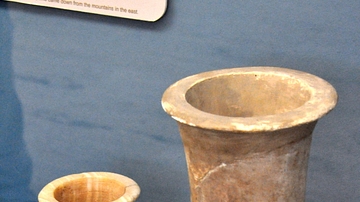
Image
Vases wtih Naram-Sin Inscription
These two marble vases were inscribed with the name of Naram-Sin, king of Sumer and Akkad. Reign of Naram-Sin, 2254-2218 BCE. From Mesopotamia, Iraq. (Istanbul Archeological Museums/Ancient Orient Museum, Istanbul, Turkey).